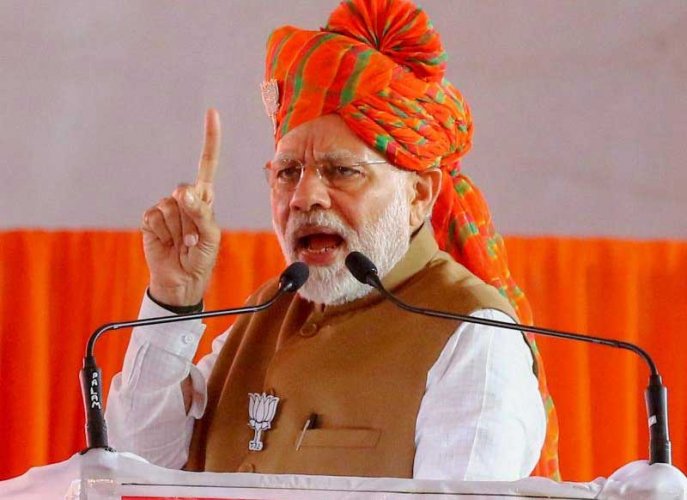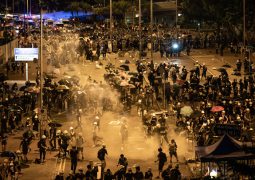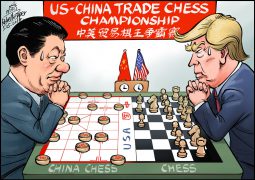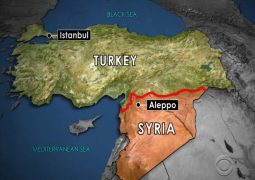Opposition Congress Party concedes. Modi declares victory in India elections.

By Nikhil Kumar, Swati Gupta, Helen Regan and Sugam Pokharel
Indian Prime Minister Narendra Modi was poised for a landslide victory in the country’s general elections, early results showed on Thursday, defying expectations of even his own party to win a second term in office.
In a victory speech at Bharatiya Janata Party (BJP) headquarters in New Delhi, Narendra Modi said his win was a “guarantee of a bright future for the common people of this country.”
“I want to bow my head before the 1.3 billion people of this country,” he told throngs of cheering supporters on Thursday night. “This election is being fought by the people. If anyone has won, it is India. We dedicate this victory to the people of India.”
At a press conference in New Delhi, the leader of the principal opposition Congress Party, Rahul Gandhi, conceded that “the people of India have decided that Narendra Modi will be the next Prime Minister.”
Although final results are still outstanding, data from India’s election commission showed that Modi’s ruling alliance, which needs 272 seats in the next parliament to form a government, was leading in 327 constituencies, giving his coalition a clear path to victory.
Full results are expected in the coming hours.
Modi and the BJP portrayed the incumbent less as an economic reformer — the main message in the 2014 elections that first brought Modi to national office — and more as a muscular nationalist firmly rooted in the Hindu right wing movement, a turn that made many liberals and minority Indians nervous.
The Congress, led by the scion of India’s Nehru-Gandhi political dynasty, struggled to make headway with voters.
The key challenge for Rahul Gandhi was to capitalize on the subdued economic mood to rebuild what was once a formidable national party machine that occupied the center-ground in Indian politics.
Trends show that this approach has failed.
Hindu-led campaign
India has a long history of sectarian violence, with members of the Hindu community, which accounts for some 80% of all Indians, often clashing with minority groups, among them the roughly 200 million Muslims who call the country home.
As a lifelong member of the Hindu rightwing movement, many members of which see India as an exclusively Hindu nation, Modi’s rise has long fanned concerns about the erosion of India’s secular foundations — concerns that were front and center during the election.
In the charged electoral atmosphere, one of Modi’s most prominent Hindu nationalist allies, the controversial Hindu ascetic turned chief minister of Uttar Pradesh, Yogi Adityanath, suggested that the Indian armed forces were in fact Modi’s forces — a remark that invited censure from India’s electoral authorities, but which also underlined the thrust of the BJP campaign.
Meanwhile, the BJP named another controversial Hindu ascetic as one of its candidates in central India. Pragya Singh Thakur, who is currently facing terrorism charges connected to a bombing attack on Muslims several years ago, won the backing of the highest echelons of the BJP despite an uproar at her nomination. Thakur denies the charges, while the BJP has portrayed the case against her as a conspiracy by its opponents to tar the country’s Hindu community.
Backed by a ground campaign operation and publicity machine that has been years in the making, overseen by BJP president and Modi’s closest political ally Amit Shah, Modi has successfully built a cult of personality that opposition parties, including the principal opposition Congress led by Gandhi, have struggled to counter.
Congress focused its campaign on what the party said were Modi’s failures to deliver on the promises he made in 2014, principally on the economy. Instead, as an alternative, it promised minimum income guarantee for poor Indians, while also saying that it would work to protect India’s diversity in the face of threats from divisive right wing Hindus.
Attempts were also made to cobble together a broad opposition alliance, bringing together regional parties opposed to the BJP, to take on the Modi juggernaut.
Yet these efforts seemed to have failed. Attention now turns to the priorities of the next Modi government, as the Indian economy, while still growing at relatively robust rates, faces a cocktail of issues: From a continuing youth jobs crisis, to indications of growing distress among India’s farmers.
- Previous Global telecom networks are suspending orders for Huawei smartphones
- Next Turkey holds joint military drill with 7 countries










